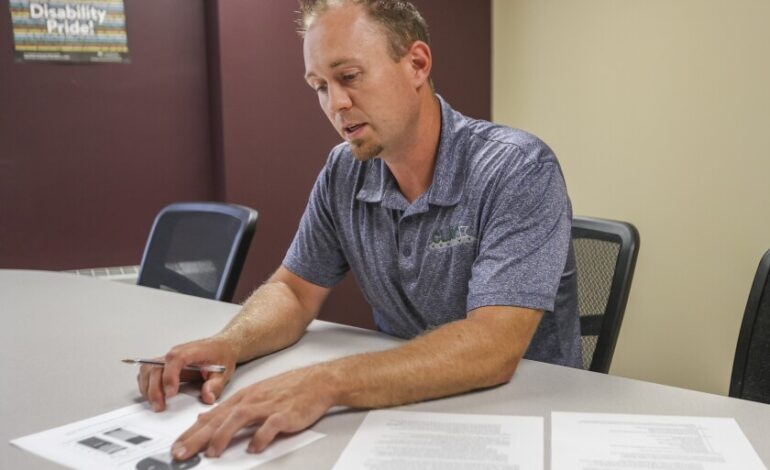Urgent: Medicaid Overhaul Could Double Costs for Clay County

UPDATE: Major changes to Medicaid are set to impact Clay County’s social services, as officials prepare for a potential doubling of administrative costs. Quinn Jaeger, Clay County Director of Social Services, warns that new federal eligibility verification measures could drastically affect the health insurance coverage of local residents.
These changes, outlined in a federal spending and tax bill signed into law on July 4, are raising alarms among mental health providers and social service administrators. “That’s what I’m the most worried about,” Jaeger stated, highlighting the risk of reduced access to health care for many residents.
The new law, which proponents label the “big beautiful bill,” mandates increased frequency of Medicaid eligibility renewals from once a year to twice a year, and introduces a work requirement of at least 80 hours per month for adults aged 19-64. Exemptions apply to individuals with disabilities and parents of young children. The implementation of these changes will occur between 2027 and 2029.
In Clay County, over 16,000 residents are currently enrolled in Medicaid, comprising 24.4% of the population. Jaeger estimates that the new verification process could at least double the workload for his team of 13 eligibility staff, leading to an additional annual cost of approximately $950,000. The total increase in administrative costs could reach up to $1.24 million per year, depending on state policy adjustments.
The Minnesota Department of Human Services has not yet provided an analysis of the bill’s impact on the state, leaving many local agencies in the dark as they brace for the changes. Jaeger expressed concern that the more stringent verification measures will not alleviate medical needs but will instead strip health coverage from vulnerable populations.
At the Lakeland Mental Health Center, CEO Donna Baker echoes Jaeger’s concerns, noting that around 60% of their clients rely on Medicaid for services. The center serves approximately 7,500-8,000 individuals across multiple counties, with more than 2,000 clients in Clay County alone. Baker fears that the increased verification frequency will burden clients, many of whom may overlook renewal notices and lose access to essential care.
“It’s a heavy lift for some of our clients to complete that paperwork to remain enrolled,” Baker stated, emphasizing the ripple effect that loss of health care can have on clients’ work, housing, and food security.
As local officials and mental health providers prepare for the impact of these sweeping changes, the community remains on edge. Immediate attention is required to ensure that vulnerable populations do not fall through the cracks as new requirements come into play.
With critical changes looming, residents and health care advocates are urged to stay informed and proactive about their Medicaid status. The full effects of this legislation will unfold in the coming months, making it essential for stakeholders to monitor developments closely.
This situation is rapidly evolving, and further updates are expected as state officials finalize their responses. Stay tuned for more urgent news on this pressing issue affecting Clay County.






